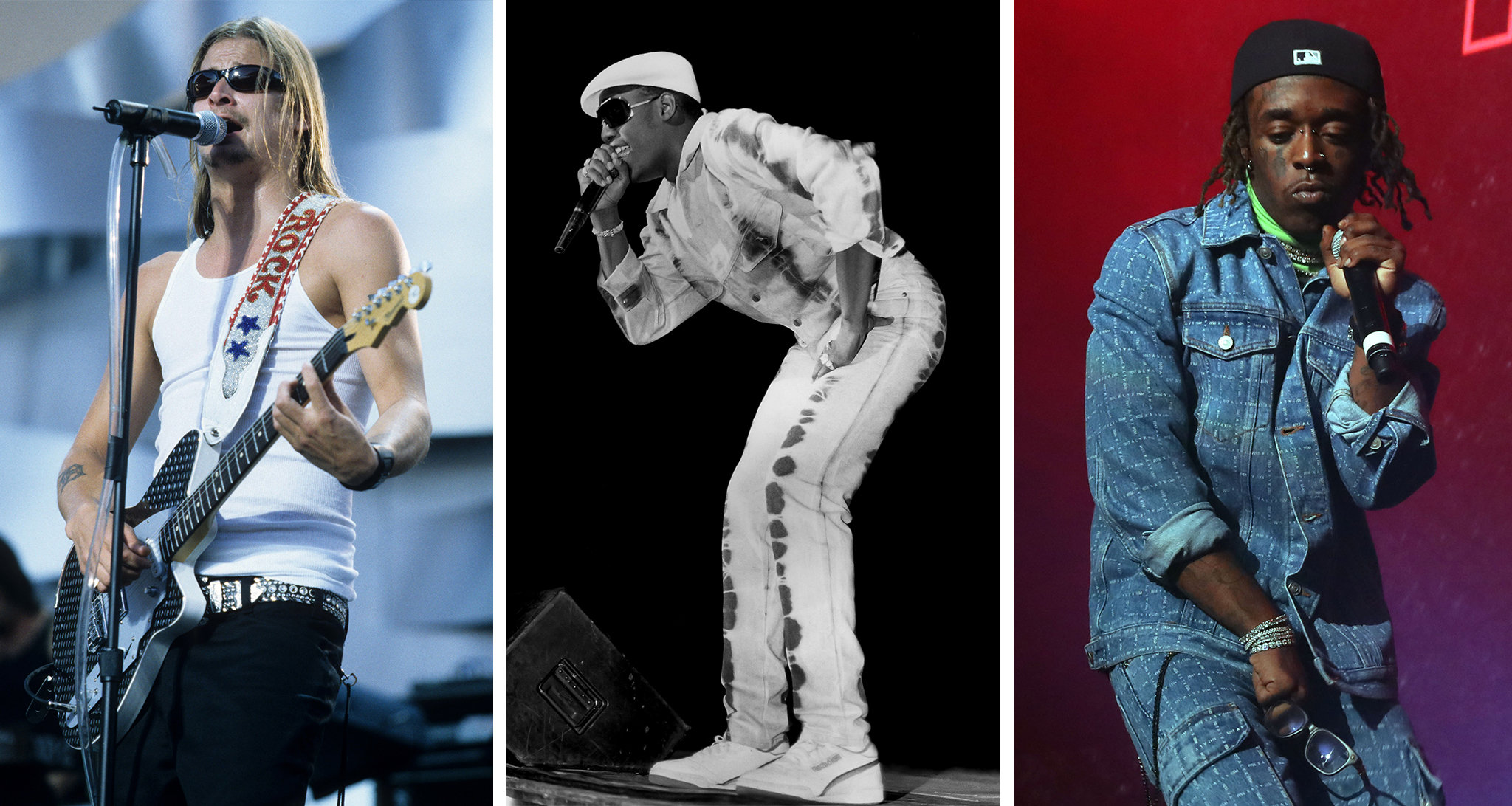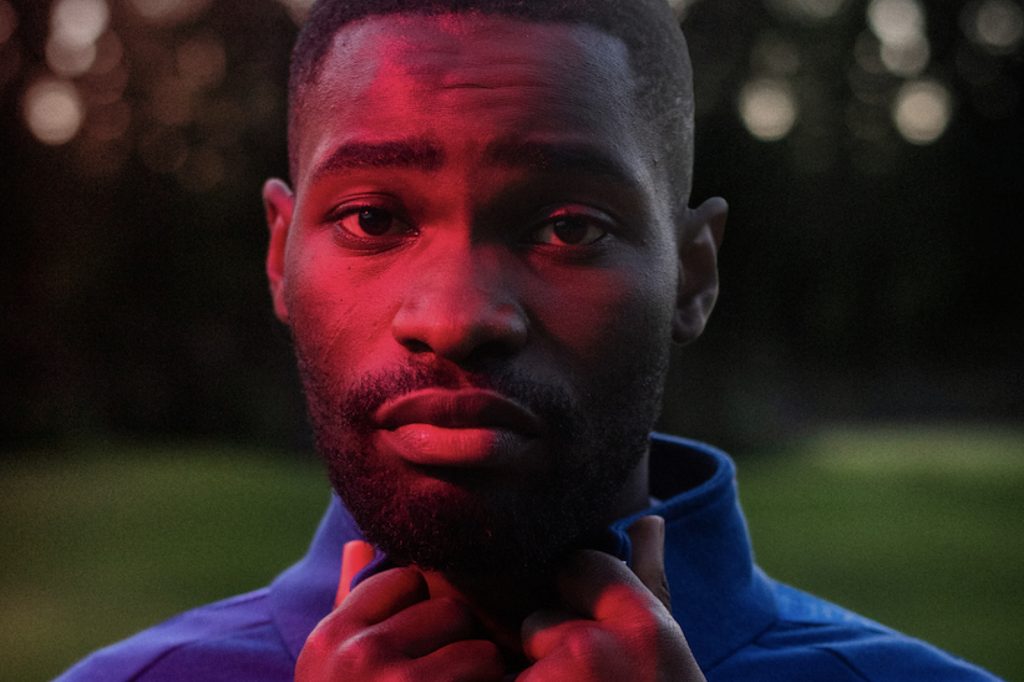Rap music has several genres, including gangsta rap, conscious hip-hop, party rap, and trap music. Rap music, a form of hip hop music, is no longer considered “new” as it has expanded into diverse sub-genres.
Gangsta rap, a controversial sub-genre that emerged in the early ’90s, features lyrics that glorify gang violence and drug use. At the other end of the spectrum is conscious hip-hop, which aims to raise awareness about social issues such as racism and inequality through lyrics.
Party rap, as its name suggests, is all about fun and getting the crowd hyped up, featuring upbeat tracks that are perfect for dancing. Finally, trap music, a subgenre of southern hip hop that originated in atlanta, is characterized by its use of hard-hitting beats and intense bass lines, often accompanied by gritty lyrics about drug dealing and the struggles of inner-city life.

Credit: www.nytimes.com
Discover The Top Genres Of Rap Music: A Comprehensive Guide.
Discover The Top Genres Of Rap Music: A Comprehensive Guide
Often noted for its sensational lyrics, powerful beats, and political undertones, rap music has garnered mass appeal worldwide. However, did you know that there are several genres of rap music that exist today? In this blog, we will explore and define the top genres of rap music.
Definition Of Genre In Music
A genre is defined as a category of artistic composition, characterized by distinct styles, forms, or content. In music, genres are distinguished by the use of specific instruments and their arrangements and the tempo, beat, and rhythm of the music.
An Introduction To Rap Music Genres
Rap music has come a long way since its early days in the 1970s when djs looped beats and rhymed over them. Today, rap music has evolved into various sub-genres, each with its unique style, beats, and instruments. Here are some of the top rap music genres to look out for:
- Gangsta rap:
This sub-genre is characterized by its aggressive lyrics, political overtones, and beats that are often slow and hard-hitting. Gangsta rap often seeks to address social injustices, racism, and police brutality. Notable gangsta rappers include tupac shakur and snoop dogg.
- Trap music:
Trap music originated in the southern united states and is distinguished by its heavy bass, use of electronic instruments, and quick beats. It often features synthesized drums, layered with rapid-fire hi-hats, and snares. Notable trap music artists include migos, lil wayne, and future.
- Chicano rap:
This sub-genre originated among spanish-speaking communities in california, texas, and other parts of the western united states. Chicano rap often highlights gang culture, street life, and social issues faced by the latino community. Notable chicano rappers include kid frost and mr.
criminal.
These are only some of the many sub-genres of rap music that are prevalent today. However, each sub-genre has something unique to offer, making rap music one of the most versatile genres in the music industry.
Rap music has come a long way since its early days, and it continues to evolve with time. Whether you’re a fan of the old-school beats of gangsta rap or the upbeat vibes of trap music, there’s something for everyone in the world of rap music.
1. Gangsta Rap
Origin And History Of Gangsta Rap
Gangsta rap is a subgenre of hip hop music that originated in the mid-1980s in the united states. It is characterized by its explicit and violent lyrics that depict life in inner-city neighborhoods. The term “gangsta” was first used by rapper ice-t in his song “6 in the mornin'” to describe the harsh realities of street life.
Gangsta rap began to gain popularity in the late 1980s with artists like n. w. a and ice cube, who rapped about police brutality and racial injustice.
Popular Artists And Their Contribution To The Genre
Gangsta rap has produced many influential artists over the years. Here are some of the most famous:
- Dr. dre: A member of n.w.a, dr. dre is considered one of the founding fathers of gangsta rap. He went on to produce albums for other gangsta rap artists, including snoop dogg and eminem.
- Tupac shakur: Tupac was a highly influential rapper who wrote lyrics about growing up in the ghetto and being involved in gang activity. His music often addressed social and political issues, and he is considered one of the greatest rappers of all time.
- Notorious b.i.g: Biggie was a rapper from brooklyn who explored themes of violence, drugs, and street life in his music. He is also considered one of the best rappers of all time and helped popularize gangsta rap on the east coast.
- Snoop dogg: Snoop dogg’s music is characterized by a laid-back style and lyrics that reflect the hardships of life in the inner city. He has collaborated with other gangsta rap artists and is considered one of the most influential rappers of all time.
Gangsta Rap’S Influence And Impact On Popular Culture
Gangsta rap has had a significant impact on popular culture since its inception. It has been both lauded and criticized for its explicit lyrics and depictions of violence. Some of its noteworthy contributions include:
- Shedding light on the harsh realities of inner-city life: Gangsta rap lyrics often address topics like gang violence, drug addiction, and police brutality, which are issues that affect many communities in the united states. They provide a voice for those who are often marginalized and ignored.
- Helping to create a new style of rap music: Gangsta rap paved the way for other sub-genres of hip hop, such as west coast g-funk and southern rap. It introduced new sounds and styles to the genre, such as the heavy use of bass and synthesizers.
- Contributing to the rise of hip hop culture: Gangsta rap helped make hip hop mainstream and introduced it to a wider audience. It also led to the creation of new industries, such as hip hop fashion and media. Today, hip hop is a global phenomenon that has influenced popular culture in many different ways.
2. Alternative Rap
What Is Alternative Rap?
In the world of rap music, alternative rap is a genre that draws inspiration from various styles, taking elements from jazz, rock, funk, and soul music. It can be described as the non-conventional form of hip-hop that emerged in the late 1980s and early 1990s.
Alternative rap is generally associated with socially conscious lyrics that often touch upon issues related to politics, racism, and social inequality.
The Originating Period Of Alternative Rap
Alternative rap originated in the united states during the late 80s and early 90s. The genre was a reaction to the commercialization of rap music, which was taking place at the time. Artists wanted to create a form of rap that was more creative and experimental, and that broke away from the traditional norms of rap music.
Characteristics And Features Of Alternative Rap Music
The features and characteristics of alternative rap music include a focus on socially-aware lyrics, a fusion of various musical styles, a rejection of commercialization, and a preference for live instrumentation over electronic beats. The use of unconventional musical instruments such as live bass and guitars is common, adding to the uniqueness of the genre.
Alternative rap also has a laid-back flow with emphasis on wordplay, often using metaphors and storytelling to convey a message.
Key Players In Alternative Rap
The alternative rap genre has seen the rise of many influential artists throughout the years. Here are some of the key players in alternative rap:
- Outkast: The atlanta-based duo that first gained commercial success with their album “southernplayalisticadillacmuzik” in 1994.
- A tribe called quest: The group is credited for their socially conscious lyrics and the creative use of beats and samples, influencing many alternative rap artists that followed.
- The roots: A band formed in philadelphia that incorporated jazz, soul, and funk into their music, making them a prominent name in alternative rap.
- De la soul: A group from long island who were among the first to use non-traditional sampling in hip-hop, achieving commercial success with their album “3 feet high and rising” in 1989.
In the end, alternative rap continues to evolve, taking on new forms and influences, and remains a powerful sub-genre in the world of hip-hop music.
3. Trap Music
The Rise Of Trap Music
Trap music is a sub-genre of hip-hop music, which originated in the southern united states. This music style began to gain popularity in the early 2000s, with its roots in clubs and mixtapes. The emergence of trap music represented a new sound and aesthetic that appealed to a younger generation, and it began to take over the music scene.
Today, trap music is one of the most popular music styles in the world, with its infectious beats, catchy melodies, and lyrics that relate to young people’s lifestyles.
The Characteristics Of Trap Music
Trap music is characterized by its fast tempo, heavy basslines and drums, and its use of synthesizers and electronic sounds. The genre also features dark, ominous themes that can be violent or explicit. The name “trap” is derived from the term “trap house,” which refers to places where drugs are sold and used.
Trap music lyrics often talk about drug dealing, hustling, and street life.
Furthermore, trap music is often highly repetitive, with a focus on creating catchy hooks and choruses. The style combines hip-hop, dubstep, and other electronic elements to create a unique sound that appeals to a diverse audience.
Popular Artists And Their Contribution To The Genre
Several famous artists have contributed to the growth and popularity of trap music worldwide. Artists like t. i, gucci mane, future, young jeezy, and 2 chainz are known for their trap music style. Among these artists, t. i. Is considered one of the pioneers of trap music.
He is credited with releasing albums that helped popularize the music style.
Moreover, gucci mane is considered one of the most successful trap music artists. Throughout his career, he has released numerous hit singles in the genre, including “i get the bag,” and “wake up in the sky. ” His music has helped to cement the trap music style within mainstream popular culture.
The Impact Of Trap Music On Popular Culture
The impact of trap music on popular culture is vast and far-reaching. The catchy hooks, infectious beats, and relatable lyrics of the genre have helped it to become one of the most popular music styles in the world. Trap music has influenced fashion, language, and even dance.
The style’s popularity has led to the rise of several sub-genres such as “emo trap” and “drill trap. “
Moreover, trap music has also influenced other musical genres. Pop singers like ariana grande and miley cyrus have collaborated with trap music artists to incorporate their style into their music. In essence, the impact of trap music on popular culture will continue to evolve and grow in the coming years.
4. Conscious Rap
Definition Of Conscious Rap
Conscious rap, also known as political rap or socially conscious rap, is a sub-genre of hip-hop music that addresses social issues concerning race, inequality, poverty, politics, and religion. This genre of rap music has a focus on raising social awareness and understanding the power of music in effecting social change.
Some key characteristics of conscious rap include:
- Lyrics with a strong message about social issues
- Emphasis on positive themes such as cultural and political awareness, justice, peace, and unity
- Diverse styles of music that blend hip-hop with other genres such as jazz, soul, funk, and reggae
- Use of storytelling, metaphors, and poetic verses
The Origins Of Conscious Rap
Conscious rap emerged in the 1980s as a response to the widespread popularity of gangsta rap. Early pioneers of conscious rap include public enemy, krs-one, and boogie down productions. They used their music as a tool to fight against social injustice and inequality.
The 1990s saw the rise of conscious rappers such as wu-tang clan, a tribe called quest, and digable planets. These artists used their music to highlight the african american experience, cultural identity, and the struggles faced by the urban community.
The Importance Of Social Consciousness In Conscious Rap Music
One of the key features of conscious rap is the emphasis on social consciousness. Conscious rap encourages the listening public to be aware of their surroundings and to think critically about social issues. It provides a platform for marginalized voices to be heard and for the struggles of the oppressed to be validated.
This is a significant aspect of hip-hop culture, as it promotes activism and social change, using the power of music to inspire and uplift.
Key Players In Conscious Rap
The conscious rap sub-genre includes many notable artists who advocate for social activism and political awareness. Here are a few of the key players in the genre:
- Public enemy
- Krs-one
- Boogie down productions
- A tribe called quest
- Wu-tang clan
- Mos def
- Common
- Talib kweli
- The roots
These artists have used their music to tackle various social and cultural issues, creating an impact that transcends their music and inspiring listeners to take action.
5. Horrorcore
What Is Horrorcore
Horrorcore is a subgenre of rap music that combines horror-themed lyrics and dark imagery with aggressive beats and violent rhymes. This genre of rap is not for the faint-hearted, as it explores themes of violence, gore, and horror in a raw and explicit way.
Horrorcore rap often employs a mix of horror movie samples, ambient sounds, and eerie soundscapes to create a unique and disturbing sound that sets it apart from mainstream rap.
The Origins Of Horrorcore Rap
Horrorcore rap emerged in the mid-1980s with groups like the geto boys and the gravediggaz, who incorporated horror themes into their lyrics and imagery. The geto boys were particularly influential in shaping the sound and style of horrorcore, with their songs like “mind of a lunatic” and “chuckie” being some of the earliest and most memorable examples of this genre of rap.
Features And Characteristics Of Horrorcore
Horrorcore rap is characterized by its dark and violent lyrics, often filled with graphic depictions of murder, mutilation, and horror. The lyrics may also include references to satanism, black magic, and other occult themes. The beats and instrumentals in horrorcore are typically fast-paced, heavy, and aggressive, with elements of horror movie soundtracks often woven into the music.
Some of the key features of horrorcore include:
- Hardcore and graphic lyrics
- Horror and occult themes
- Graphic depictions of violence and gore
- Fast-paced and aggressive beats
- Eerie and spooky soundscapes
Notable Players In Horrorcore
While horrorcore may not be the most well-known subgenre of rap, there have been several notable players who have made their mark on the genre. Some of these include:
- Insane clown posse: One of the most popular and controversial groups in horrorcore, icp has been making music since the early 1990s. Their music and imagery often explore themes of satanism, violence, and insanity.
- Gravediggaz: A supergroup comprised of rappers from wu-tang clan and other underground rap groups, gravediggaz helped establish horrorcore as a distinct sub-genre of rap. Their music incorporated horror-movie samples, eerie soundscapes, and graphic lyrics to create a uniquely dark and unsettling sound.
- Necro: An american rapper, necro has been described as the “king of death rap”. His music often features graphic descriptions of violence, sex, and death, as well as references to serial killers and the occult.
Horrorcore is a subgenre of rap that is not for everyone. It explores dark and disturbing themes in a raw and explicit way, combining horror movie imagery with aggressive beats and violent rhymes. While it may not be the most mainstream type of rap, it has a dedicated and passionate following among fans of the genre.
Factors To Consider
Personal Preferences
Rap music is highly diverse, and its numerous sub-genres can cater to different tastes and preferences of listeners. Here are the key factors to consider when selecting a rap music genre based on your personal preferences:
- Tempo: If you prefer a higher tempo, genres like trap, drill, and grime might be your jam. However, if you prefer a slower pace, you might want to consider sub-genres like conscious rap, jazz rap or alternative hip-hop.
- Melodic tendencies: If you prefer rap music with more melodies and singing, genres such as melodic rap, emo rap, and trap soul might appeal to you better. On the other hand, if you prefer highly lyrical rap, genres like boom-bap, old school, and underground hip-hop might be more your style.
- Cultural influences: Rap music is influenced by different cultures, and if you have a particular interest in a particular culture, you can opt for sub-genres such as afrobeat rap, latino rap, and drill music.
Lyricism
One of the defining characteristics of rap music is its focus on delivering meaningful messages and stories through lyrics. Here are the key factors to consider when assessing the lyrical content of rap music genres:
- Depth of content: Some sub-genres of rap are known for their depth of content and socially conscious themes. These sub-genres include conscious rap, political rap, and social justice rap. However, if you prefer more playful and light-hearted lyricism that talks about fun topics, you might consider sub-genres like party rap, comedy rap, and mumble rap.
- Vocabulary and wordplay: If you appreciate intricate wordplay with complex metaphors and similes, sub-genres such as boom-bap, underground rap, and horrorcore might be ideal for you.
- Storytelling and narrative abilities: Some sub-genres of rap excel in storytelling abilities, painting vivid pictures in their lyrics. You might want to explore sub-genres such as gangsta rap, horrorcore, and narrative rap.
Emotional Appeal
Rap music is renowned for being able to capture the deep emotions of listeners. Here are the key factors to consider when assessing the emotional appeal of rap music genres:
- Tone and genre: Some sub-genres are known for having an emotional and introspective tone. These sub-genres include emo rap, trap soul, introspective rap, and alternative hip-hop.
- Themes: If you prefer the emotional elements of love and heartbreak, you might consider sub-genres such as r&b rap, love rap, and bedroom pop.
- Delivery style: Each sub-genre has its unique delivery style and authenticity that conveys different emotions. You may want to try out different sub-genres to determine which delivery style resonates with you the most.
Production Quality
Production elements play a critical part in the overall sound and quality of a rap music genre. Here are the key factors to consider when assessing the production quality of rap music genres:
- Instrumentation: The use of instrumentation can enhance the sound quality of a rap genre, making it more complex and nuanced. You might want to listen to sub-genres like jazz rap, boom-bap, and neo-soul rap, as they tend to rely on instrumentation for their unique sound.
- Beat quality: A good beat can make or break a rap song, and it’s crucial to consider this when exploring different sub-genres. Sub-genres like trap, drill, and grime are known for their bass-heavy beats with lots of hi-hats and snares. However, genres like jazz rap, alternative hip-hop, and experimental rap tend to have more laid-back beats.
- Mixing and mastering: High-quality mixing and mastering can differentiate between amateurish and professional-sounding music. You might want to consider sub-genres like mainstream rap, melodic rap, and trap soul, which often boast high-quality mixing and mastering.
By considering these factors, you can explore and enjoy the diverse world of rap music and find genres that resonate with your personal preferences, lyrical interests, emotional needs, and production elements.
Discovering New Genres Of Rap Music
Rap music originated in the african american community and has evolved over the years into various sub-genres. If you are a true rap fan, you’ll want to discover new genres of this music, and here are some ways to do so:
Utilizing Online Streaming Platforms
Online streaming platforms such as spotify, apple music, and tidal are an excellent way to discover new rap music genres. You can search for different rap genres, and these platforms will curate playlists for you based on your search. Other features like the “discover weekly” playlist on spotify or the “for you” tab on apple music will also help you explore new rap music genres that you might not have heard before.
Here are some popular streaming platforms to check out:
- Spotify : This platform offers a broad selection of rap music genres. Search for playlists centered around genres like trap, drill, or alternative rap. Spotify also provides playlist curations from contributors that highlight subgenres that you might be unaware of, such as emo rap or jazz rap.
- Tidal : This platform is famous for curating playlists for popular rap genres like hip-hop and r&b. It also highlights less mainstream genres like horrorcore and gangsta rap.
- Apple music : This platform includes playlists for popular rap genres like mumble rap and trap. Apple music’s beats 1 radio station highlights new and emerging rap genres, making it a great place to find lesser-known sub-genres.
Joining Online Hip-Hop Forums And Groups
Online hip-hop forums, communities and groups allow you to connect with fans and upcoming artists globally. Within these forums, you can learn about new rap genres and discuss them with other fans. Essentially, they provide a platform to engage with people who share the same interest.
Here are some examples of hip-hop forums and groups you can check out:
- Reddit’s hiphopheads : A robust community with more than 1.1 million members, this forum covers all rap music genres and offers fresh discussions of new rap genres every day.
- The coli : Another forum community with various interesting discussions about different rap music genres like gangsta rap, southern rap, drill and more.
- Ktt (kanye to the) : A forum dedicated to kanye and other rap music genres like emo rap, jazz rap, and experimental rap.
Attending Rap Music Events And Concerts
Attending live events, concerts and festivals is a perfect way to experience new rap music genres. These events often feature artists and djs that specialize in particular rap music sub-genres.
Here are some popular rap music festivals to consider attending:
- Rolling loud : A two-day festival dedicated to hip-hop and rap. Rolling loud is the perfect place to explore all kinds of rap genres, including trap, drill, and horrorcore.
- A3c festival : An annual hip-hop festival that takes place in atlanta, georgia. The festival features a wide variety of new and upcoming rap music genres and artists, providing fans with an opportunity to discover new rap music sub-genres.
Remember, discovering new rap music genres requires a bit of effort and curiosity, but it’s worth it. Utilize these tips to expand your knowledge of rap music genres beyond just the mainstream and popular ones. Happy exploring!
Frequently Asked Questions Of Genres Of Rap Music
What Are The Different Sub-Genres Of Rap Music?
There are several sub-genres of rap music including gangsta rap, conscious rap, trap music, drill music, and mumble rap. Each sub-genre has its own unique sound and lyrical style, making them easily distinguishable from one another.
Who Are Some Of The Most Famous Rap Artists?
Some of the most famous rap artists of all time include tupac shakur, notorious b. i. g. , jay-z, nas, eminem, and kendrick lamar. These artists have influenced and shaped the rap music industry over the years with their unique styles and lyrical abilities.
How Has Rap Music Evolved Over Time?
Rap music has evolved significantly since its inception in the 1970s, with new sub-genres and styles emerging over the years. The lyrics have become more complex and sophisticated, covering a wide range of topics from politics and social issues to personal experiences and emotions.
Additionally, the beats and soundscapes have also evolved, incorporating elements from other genres such as rock, jazz, and r&b.
Conclusion
As we have learned, rap music has evolved over the years, and various genres have emerged, each with its unique style and sound. From the fast-paced rhymes of trap rap to the socially conscious lyrics of conscious rap, there is something for everyone.
It’s fascinating to see how rap music has not only influenced the music industry but also impacted society as a whole, serving as a voice for the voiceless and a beacon of hope for the marginalized. Whether you’re a fan of mainstream or underground rap, there is no denying the fact that rap music continues to dominate the music scene.
So next time you jam to your favorite rap song, take a moment to appreciate the versatility of the genre and the immense talent of its artists.













